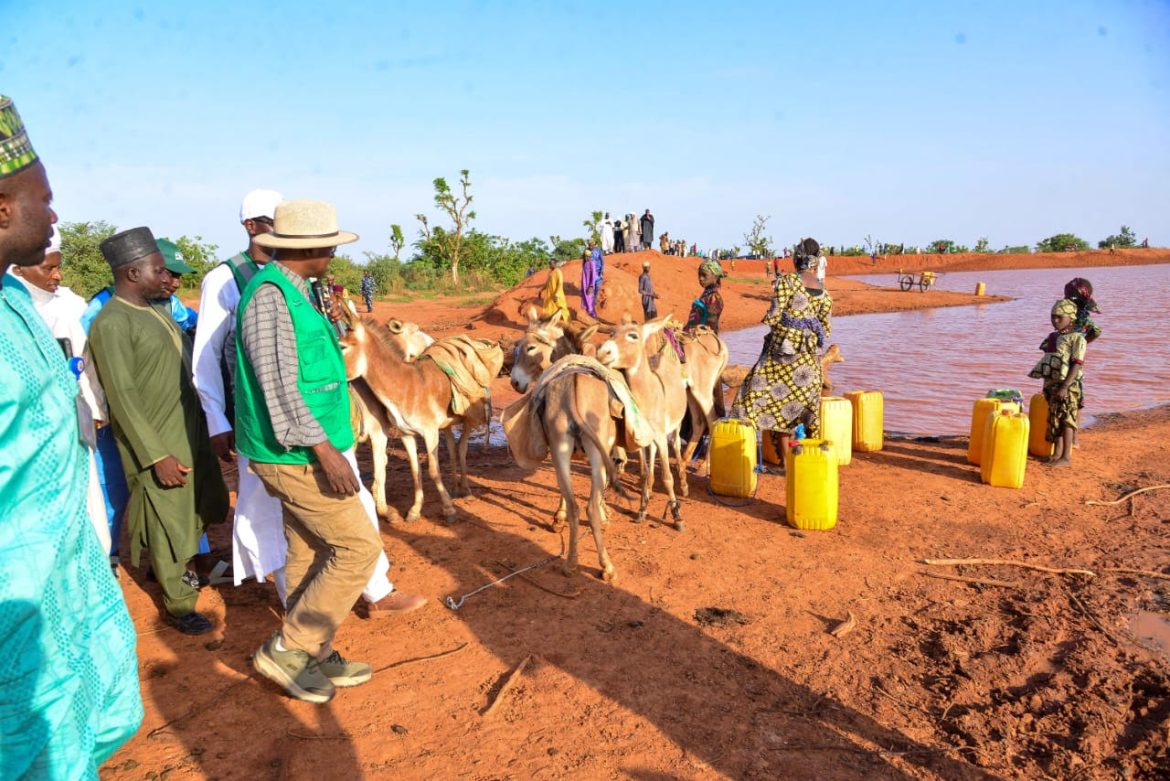870
By Daniel Adaji
The federal government has said that it is promoting a cooperative system where herders and farmers will share land and work side by side as part of a new livestock transformation plan.
Minister of Livestock Development, Idi Maiha, disclosed this during an inspection tour of the Wawa-Zange Grazing Reserve in Gombe State on Friday.
He announced plans to rehabilitate the 144,000-hectare reserve as part of the federal government’s effort to transform grazing areas into sustainable livestock development hubs.
“Wawa-Zange should come back to life. We want this reserve to become a model of sustainability,” he said.
He added that the project will include the construction of road networks, classrooms, a veterinary clinic, solar systems, primary healthcare facilities, and water supply for both humans and animals.
Maiha emphasised that the government would not evict farmers who have settled in the area but will promote a system of shared use.
“Farmers will provide residual crop feed for the herders, while herders supply manure to enrich the farmers’ soil. “By every standard, these residents deserve all the amenities that a modern grazing reserve should offer,” he said.
The minister described the initiative as a way to curb seasonal migration, promote peaceful coexistence, and boost productivity in both crop and livestock value chains.
The clashes between settled farmers and nomadic herders have been going on for ages. Not common to Nigeria alone, but incidents in Nigeria have left many homes and towns deserted and lives lost.
Experts blame this crisis on shrinking grazing routes, poor governance, environmental degradation, and deep-seated mistrust.
Additionally, droughts in the north and floods in the south have forced herders and farmers into tighter spaces, heightening the competition for land.
Between 2020 and 2024, clashes between farmers and herders across Nigeria claimed at least 2,347 lives in 359 separate incidents, according to data compiled by the Nigeria Violent Conflicts Database managed by Nextier.
Maiha revealed that the Wawa-Zange Reserve would host breed improvement centres and pasture cultivation projects to discourage nomadic herding. The aim, he noted, is to make reserves like Wawa-Zange fully functional and economically viable.
During his visit, the minister paid a courtesy call to Gombe State Governor Muhammadu Inuwa Yahaya to discuss strategic partnerships in the implementation of the livestock policy.
Gombe State Commissioner for Agriculture and Animal Husbandry, Dr Barnabas Malle, welcomed the initiative and noted, “The herders are ready to settle if the necessary amenities like water and accommodation are put in place.”
The inspection of Wawa-Zange follows recent efforts under the National Livestock Growth Acceleration Strategy (NL-GAS), which targets the rehabilitation of 417 grazing reserves across the country.
In May 2025, the Ministry launched the Wase Livestock Village in Plateau State, a pilot project already serving as a model for integrated livestock settlements.
Officials say the revitalisation of reserves will create jobs, improve food security, reduce emissions from migratory herding, and support Nigeria’s economic diversification.



